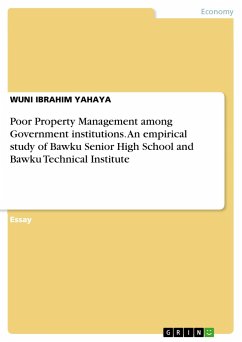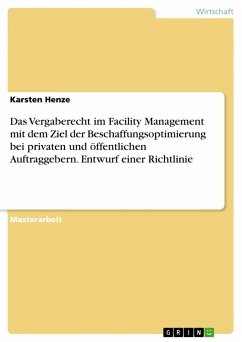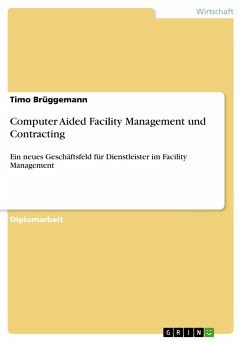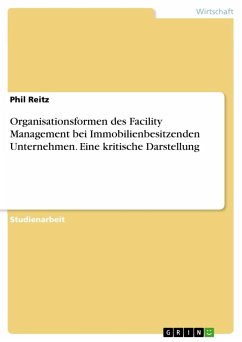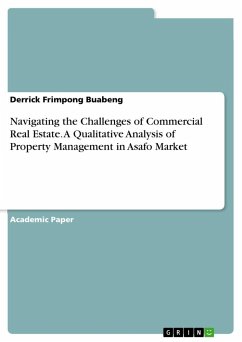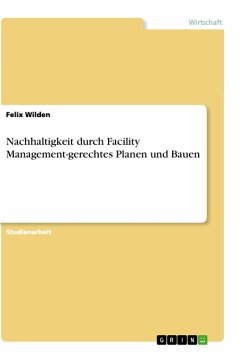Essay from the year 2016 in the subject Business economics - Business Management, Corporate Governance, Kwame Nkrumah University of Science and Technology (Department of Land Economy), course: Bsc. Land Economy, language: English, abstract: Facility management which ideally forms part of management in practice is sidelined in the financial planning and capital budgeting of most public institutions in Ghana. The indications are shown in the derelict cascades of most public institutions. The Study made an empirical investigation into the causes and effects of poor property management on government institutions with a focus on Bawku Senior High School and Bawku Technical Institute in the Upper East Region of Ghana. Relevant Related Literature was reviewed from the works of other researchers to set the framework and boundary for this research piece. The research design that was adopted for this study mainly descriptive because of the nature of the data which was basically qualitativeand the survey instruments that were used in the data collection were basically interviews and the researcher's personal observation. The study identified that deferred maintenance and poor maintenance culture are the most severe causes of poor facility management which are a result of use of inappropriate materials Poor designs of buildings, total indiscipline in the use of the facilities and budgetary restrictions. It was identified that the two institutions had no qualified facility managers but relied on maintenance teams selected from among teaching and non-teaching staff; that had no property knowledge. The study also revealed that the two institutions had no funds meant for maintenance and thus relied on funds from the central government in which the procurement process is practically bedeviled with bureaucracy. The study also revealed that the effects of poor facility management hunt the institutions in the forms of financial erosion, poor property outlook, threatens the safety of the inhabitants and expending of heavy sums of funds to right management wrongs. The study finally recommended that facility management should be allocated an attentive portion in the financial and capital budgeting of public institutions.
Hinweis: Dieser Artikel kann nur an eine deutsche Lieferadresse ausgeliefert werden.
Hinweis: Dieser Artikel kann nur an eine deutsche Lieferadresse ausgeliefert werden.

